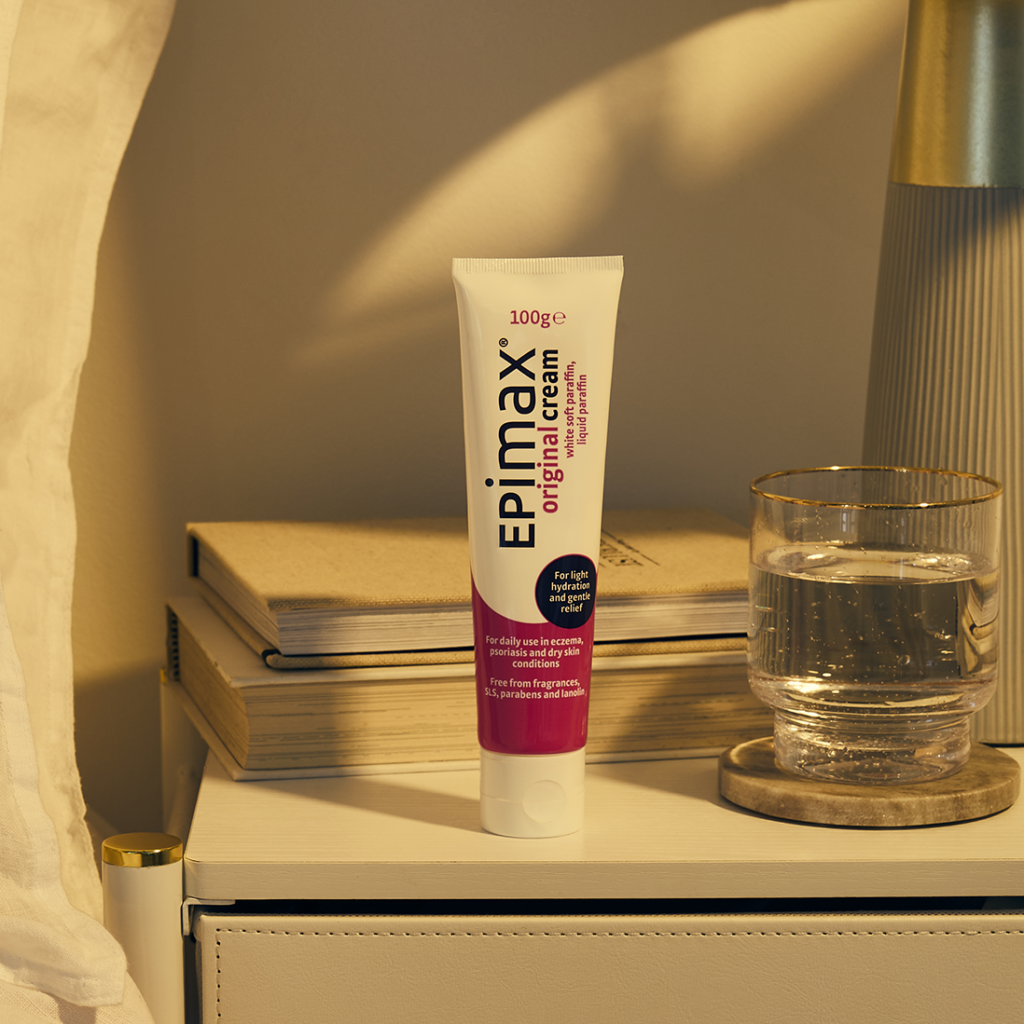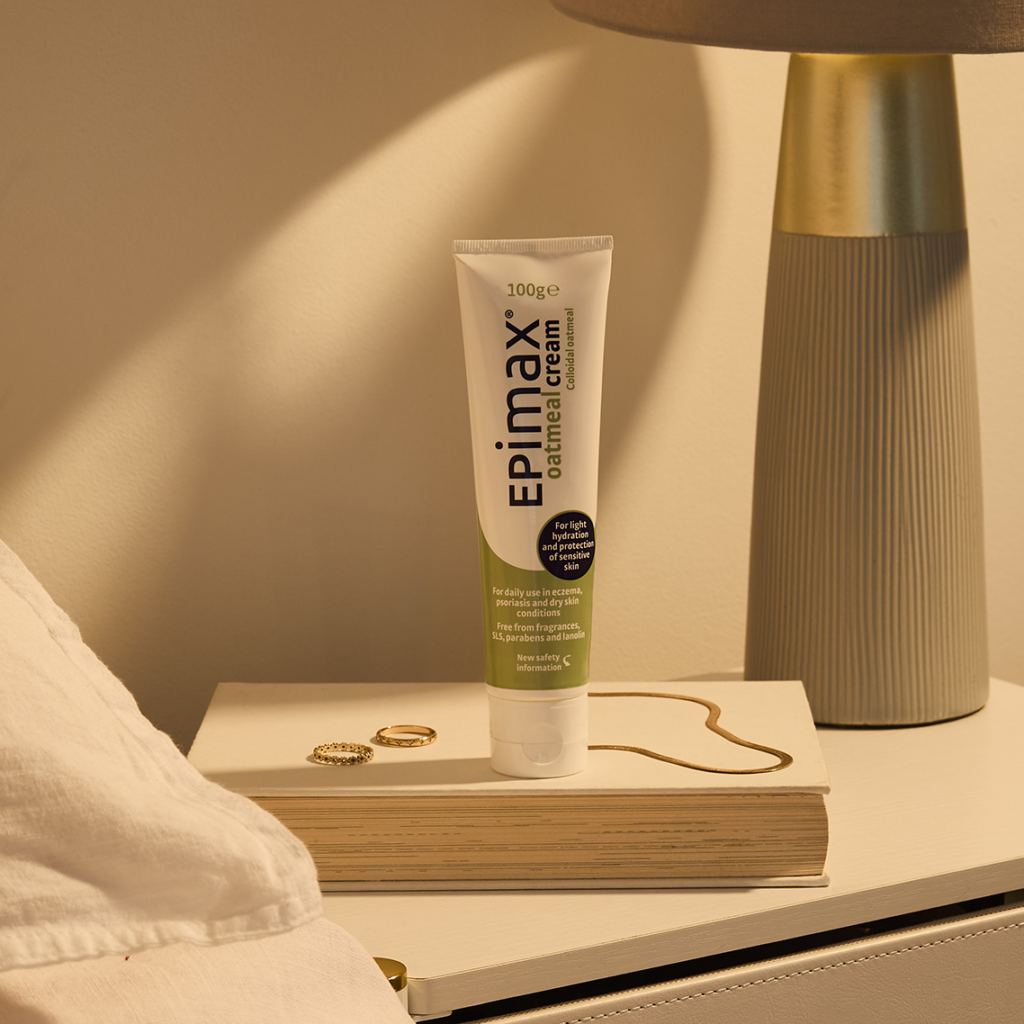For people living with dry skin conditions like eczema and psoriasis, getting a good night’s sleep can be difficult. The discomfort and itchiness that often comes with these conditions can lead to disrupted sleep, significantly affecting quality of rest and overall wellbeing.
It’s widely understood that sleep is essential for helping maintain our health, so what can you do to help improve yours?
Why you might feel itchier at night:
During the night, your skin loses more moisture than it does during the day, leading to increased dryness and itchiness.1 Additionally, the ‘itch sensation’ may feel more intense as there are less distractions while you are trying to sleep than during the day.2
To help break the itch-cycle during the night, why not try practicing mindfulness, meditation or breathing exercises to help redirect your focus and attention.2

Did you know we spend over a third of our lifetime in bed?
It’s essential to create a skin-friendly environment in your bedroom.3
Here’s how you can optimise your bedroom setup:
- Choose a lower tog duvet (between 1.5 and 4.5 tog) to help you keep cool overnight.4 In colder months perhaps use two thinner duvets so one can be removed if you are getting too hot in the night. If you and your partner have different sleeping temperature preferences, consider using separate duvets.5
- Some people find that feather filling in pillows and duvets can trigger flare-ups, so instead, look for synthetic bedding that is non-allergenic.6
- Avoid using a memory foam mattress as it traps heat in your bed by moulding around the shape of your body.4,5
- Try not to keep lots of soft furnishings on your bed and in your bedroom as they can harbour dust. Some people with eczema find it helpful to swap carpets for hard flooring and curtains for wooden or metal blinds, as they are easier to keep clean.5

Maintaining a Healthy Sleep Space:
- Clean your bedroom frequently and damp-dust (using a lightly dampened cloth or sponge) to remove dust, pollen, and mould. Air your room out with fresh air during the day, unless there’s a high pollen count.5
- Wash bedding regularly (if possible, at least twice a week) to remove dust and other allergens, as well as any emollient or treatment residue that could be deposited on and trapped in your sheets5
- Vacuum your mattress thoroughly each time you change your bedding to keep it clean and remove dust.5, 6
- Opt for natural, breathable fabrics for your sleepwear, such as cotton, bamboo, or silk. Cotton is a popular choice for both nightwear and bedding because it can be washed at high temperatures to remove skin debris, house dust-mite droppings and emollient residue.5

We hope these tips help you to have more comfortable night’s sleep!
Always read the label.
Precautions: Fire hazard. Do not smoke or go near naked flames; clothing & bedding with this product dried on them can catch fire easily.
- https://www.healthline.com/health/itchy-skin-at-night (Accessed March 2025)
- https://www.psoriasis-association.org.uk/news/psoriasis-and-sleep-question-answer (Accessed March 2025)
- https://pubmed.ncbi.nlm.nih.gov/21056174/ (Accessed March 2025)
- 165-Exchange-Bedding-article.pdf (Accessed March 2025)
- https://eczema.org/information-and-advice/living-with-eczema/sleep-and-eczema/ (Accessed March 2025)
- https://www.webmd.com/skin-problems-and-treatments/eczema/eczema-sleep-tips (Accessed March 2025)
EPI1010451CCC1_MAR2025
